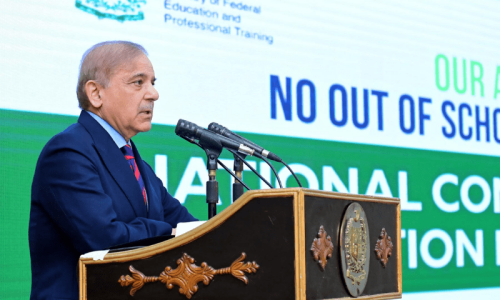AS political parties scramble to form a potentially weak coalition at the centre, the uncertainty unleashed by the inconclusive outcome of the Feb 8 polls is giving Pakistan’s creditors and investors the jitters.
This nervousness stems from widespread doubts over the incoming government’s ability to quickly negotiate a new and larger bailout with the IMF to succeed the ongoing interim package ending soon, and adhere to tougher policy commitments under it.
This is in spite of a strong political consensus within the country on the need for yet another IMF programme and wide structural reforms considered critical for Pakistan’s longer-term economic trajectory. The deal is also crucial for Pakistan to secure financing flows from other multilateral, bilateral and commercial creditors.
These concerns were recently voiced by Moody’s in its post-poll comments on Pakistan’s macroeconomic vulnerabilities. Now Fitch Ratings has expressed its disquiet over the volatile political conditions obtaining in the country in the absence of a clear public mandate: “Finalising a new IMF deal is likely to be challenging.”
Pointing to the election outcome, it warns that “near-term political uncertainty may complicate the country’s efforts to secure a financing agreement with the IMF to succeed the Stand-by Arrangement”.
Fitch assumes that the new government will engage with the IMF relatively quickly and overcome any resistance to the new loan goals by vested interests, given the worrying nature of the economic challenges and the limited options, yet it fears that continued political volatility could prolong any discussions with the IMF and hamper the implementation of reforms. “Risks to political stability are likely to remain high. Public discontent could rise further…,” it cautions.
That creditors and investors are worried about political uncertainty and possible delays in concluding a new IMF deal is not without reason. Our politicians are known for changing their stated position on crucial economic and other policy matters when in the opposition.
Even past governments have pulled out of financial deals, when faced with political backlash. However, politicking over a new deal and the reforms mandated by it is no longer an option for Pakistan.
As underscored by Fitch, extended negotiation or failure to secure a commitment would increase external liquidity stress and raise the possibility of default. If that happens the blame would rest with those who scuppered the deal.
Published in Dawn, February 21st, 2024













































Dear visitor, the comments section is undergoing an overhaul and will return soon.